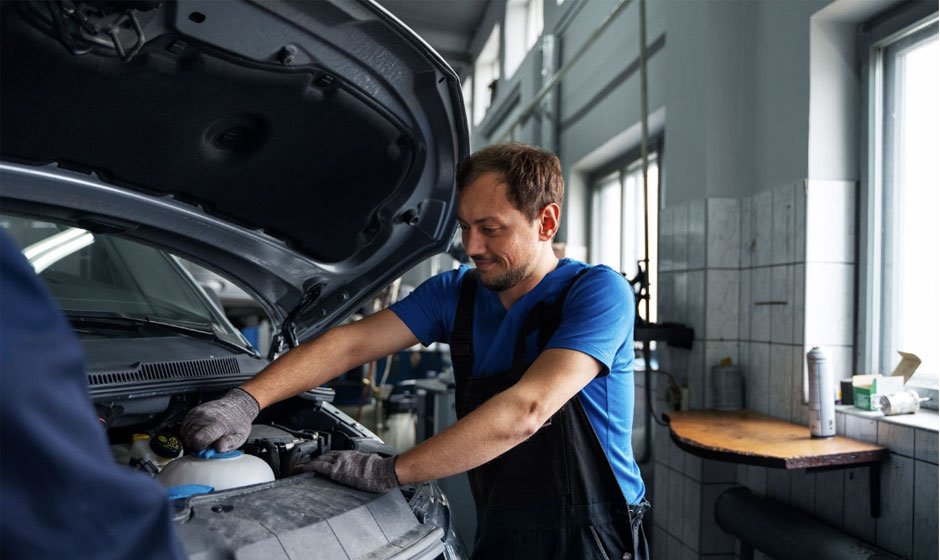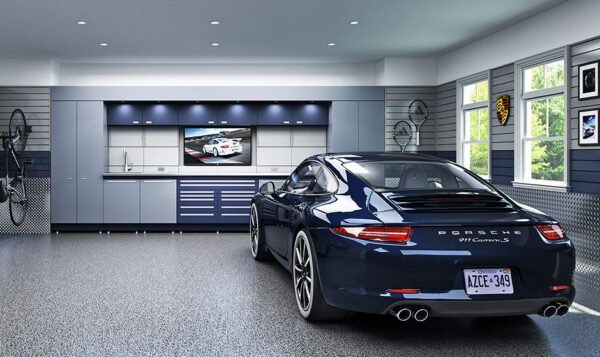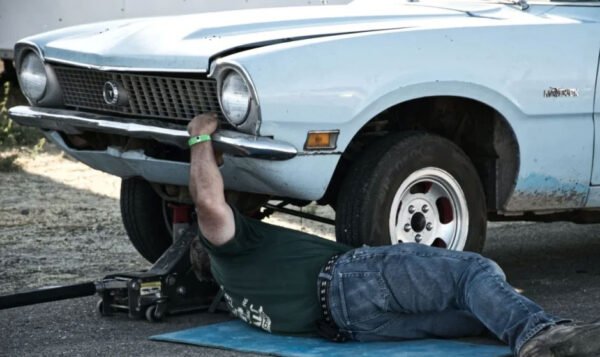Car maintenance schedule: How often should you service your Renault Van?

Do you own a new Renault van, or are you planning to invest in one? The foremost thing you must be aware of is its servicing and maintenance needs.
Regular Renault van service and maintenance typically include basic check-ups and fluid top-ups. It’s a good idea to contact an authorised Renault service centre in Melbourne to discuss more about regular Renault van maintenance.
In this blog post, we’ll discuss factors that impact the van maintenance schedule and some tell-tale signs indicating it is time for vehicle service.
Why is maintaining your Renault Van regularly important?
The Renault Van (also known as Renault Trafic) is a light commercial van (LCV) that comes with exclusive load capacity and advanced engine specifications. It has an extremely powerful engine with great fuel economy and produces less emissions. All thanks to the 2.0L Turbodiesel design with 125kW and 3,500RPM. The vehicle payload is 1,279 kg, and the vehicle load volume is 8,900 litres. This commercial van is also loved for the comfort and convenience it offers, especially when you drive on rough roads.
Having such high-end specifications makes it essential to service your car regularly. Regular servicing and maintenance will allow the vehicle to perform at its best in terms of efficiency and safety.
Regular Renault Van service ensures that everything on your LCV is working fine and promises you peace of mind. Moreover, the vehicle will not give you any trouble while travelling and will save you money on unexpected repairs.
So, if you want the van to run smoothly and be fuel-efficient for years to come, keep up with regular maintenance. It will prevent you from expensive repairs and replacements. Make sure to discuss the cost of full service for a car with your Renault mechanic and plan your budget accordingly.
5 warning signs it’s time to get your Renault Van serviced
Every modern vehicle gives some warning signs, but ignoring them can lead to expensive repairs and replacement. Here are the common tell-tale signs you must be aware of:
1.Strange sounds
Unusual noises coming from your vehicle are major warning signs. An overheating engine may produce a hissing sound under the bonnet. Similarly, screeching brakes indicate a problem with brake pads, while a grinding sound indicates friction between vehicle components.
2. Smoke and fumes emissions
Noticing smoke from your car? It can be a sign that you need to service your car soon. It can be due to worn-out engine oil seals, head gasket failure and worn valve seals. To prevent your car from damage, it’s important to identify the source of fumes or smoke in your car.
3. Engine warning light
If you notice warning lights on the dashboard, don’t ignore them. Different warning lights indicate different problems, such as battery issues, security alerts, lamp outs and oil pressure warnings. So, if you notice an active warning light, take your Renault Van to your mechanic immediately.
4. Strange vibrations
If you are noticing unusual vibrations under the wheel, it’s a sign that it’s time for your Renault van service. It can be due to faulty pressure plates, oil leaks or failing universal joints.
5. Decreased power
If the van struggles to reach its full speed potential, even when fully accelerating, it’s a strong sign that your vehicle needs attention.
Factors influencing Renault service frequency
There are many factors that influence the service frequency of Renault Van, including:
-
Road conditions
Adverse road conditions can affect the vehicle and limit its performance. The damage depends on how rough the roads are. If the vehicle frequently travels on rough surfaces, it can damage the suspension system, wear down tyres early and cause engine overheating.
-
Weather conditions
The frequently changing weather conditions in Australia can also affect your van’s condition. For example, heavy rains may flood roads, which may affect traction. Similarly, high temperatures, weather hot or cold, strain engines and tyres and may potentially cause vehicle breakdowns.
-
Average vehicle usage
It’s simple: the more you drive, the quicker your vehicle wears out. Vehicle components like tyres and brakes that are used more may deteriorate in their overall condition and performance, faster.
-
Poor driving habits
Driving rough or speedily has a major impact on the engine and transmission health of your vehicle, reducing your fuel efficiency. Applying brakes abruptly or accelerating frequently can wear on your damage your brake system.
-
Overloading
The daily load capacity can decrease the van’s life span. If you load your Renault van more than its average capacity, it will strain your suspension system, engine and tyres, causing them to wear early.
Recommendation for Renault Van maintenance schedule
In general, the Renault Trafic comes with a 5-year/ 90,000km service plan with 15,000km service intervals and a 5-year anti-corrosion warranty.
Manufacturers also recommend taking your Renault van for servicing every 12 months or after 19,000 km, whichever comes first. Neglecting these regular service visits will ultimately cause you a higher Renault full-service cost later.
As a final point…
To keep your Renault van in good shape and extend its lifespan, you must follow these maintenance suggestions seriously. Do not ignore the warning signs, and take your vehicle to professional mechanics immediately. Doing this will prevent unnecessary vehicle problems, ensuring you peace of mind and safety.



